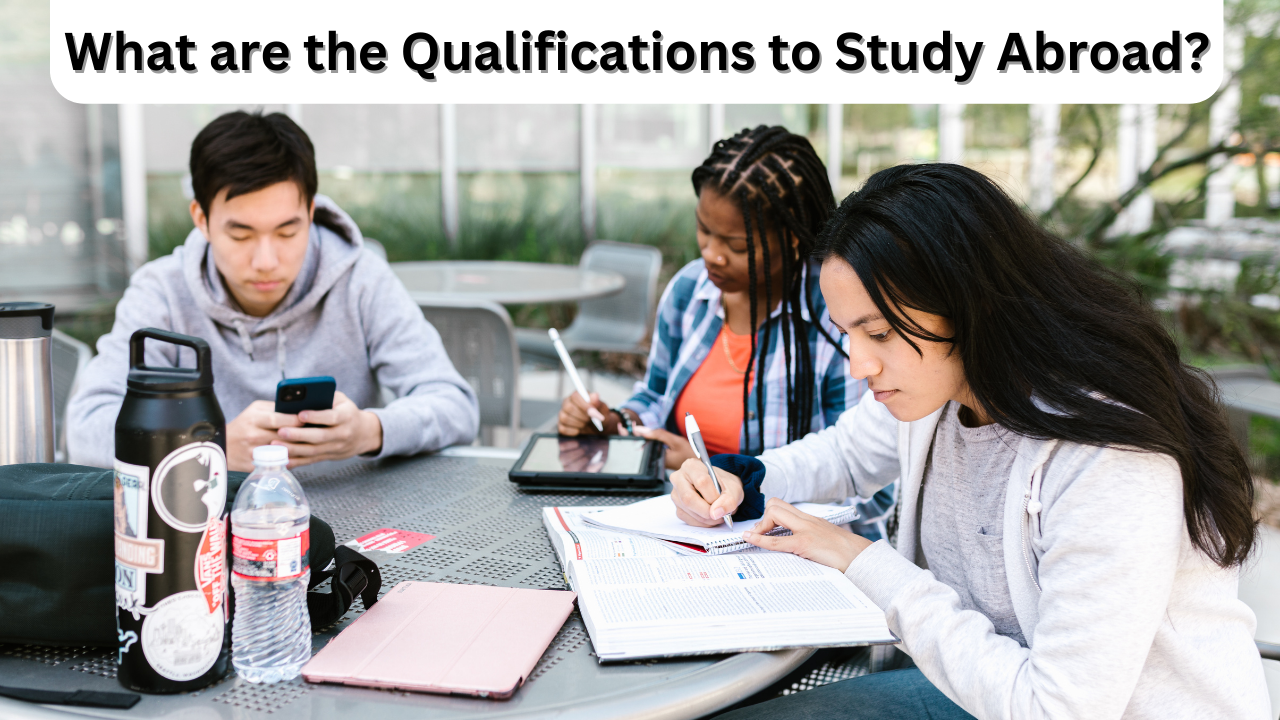Studying abroad is a great way to expand your education, gain new experiences, and learn about different cultures. However, there are certain qualifications that you need to meet in order to be eligible to study abroad.

Academic Qualifications
The academic qualifications that you need to study abroad will vary depending on the country and university that you want to attend. However, most universities will require you to have a high school diploma or equivalent, and some may also require you to have taken certain courses in high school.
For example, if you are planning to study medicine in the United States, you will need to have taken the SAT or ACT and have a high GPA in your science and math classes.
English Language Proficiency
If you are planning to study in an English-speaking country, you will need to demonstrate your English language proficiency. This can be done by taking an English language test such as the IELTS, TOEFL, or PTE.
The minimum score that you need to get on these tests will vary depending on the university and program that you are applying to. However, you should aim to get a score of at least 7 on the IELTS or 100 on the TOEFL.
Financial Resources
Studying abroad can be expensive, so you will need to have the financial resources to cover your tuition, travel, and living expenses. Some universities offer financial aid to international students, but you will need to apply for it separately.
The amount of financial aid that you can get will depend on your financial need and the university’s policies. However, you should expect to pay at least $20,000 per year for tuition and living expenses.
Other Requirements
In addition to academic qualifications, English language proficiency, and financial resources, some universities may also require you to have a letter of recommendation, a personal statement, or other documents.
The specific requirements will vary depending on the university and program that you are applying to. However, you should be prepared to provide some kind of personal statement or essay that explains why you want to study abroad and what you hope to achieve.
How to Find Out the Qualifications for Studying Abroad
The best way to find out the qualifications for studying abroad is to contact the university or program that you are interested in. They will be able to tell you exactly what you need to do in order to be eligible to apply.
You can also find information about the qualifications for studying abroad on the websites of different universities and organizations. For example, the Institute of International Education (IIE) has a website with information about the qualifications for studying abroad in different countries.
Benefits of Studying Abroad
There are many benefits to studying abroad, including:
- Gaining new experiences and learning about different cultures
- Expanding your education and earning a valuable degree
- Improving your English language skills
- Building your CV and making yourself more marketable to employers
- Networking with international students and professionals
- Gaining a global perspective and becoming a more well-rounded individual
If you are interested in studying abroad, I encourage you to start planning early. The process can be daunting, but it is definitely worth it in the end.
Here are some additional tips for studying abroad:
- Start planning early. The application process can take several months, so it is important to start planning early.
- Do your research. There are many different study abroad programs available, so it is important to do your research and find one that is right for you.
- Talk to your advisor. Your advisor can help you with the application process and answer any questions that you have.
- Be prepared to adjust. Studying abroad can be a challenging experience, but it is also an incredibly rewarding one. Be prepared to adjust to a new culture and way of life.
